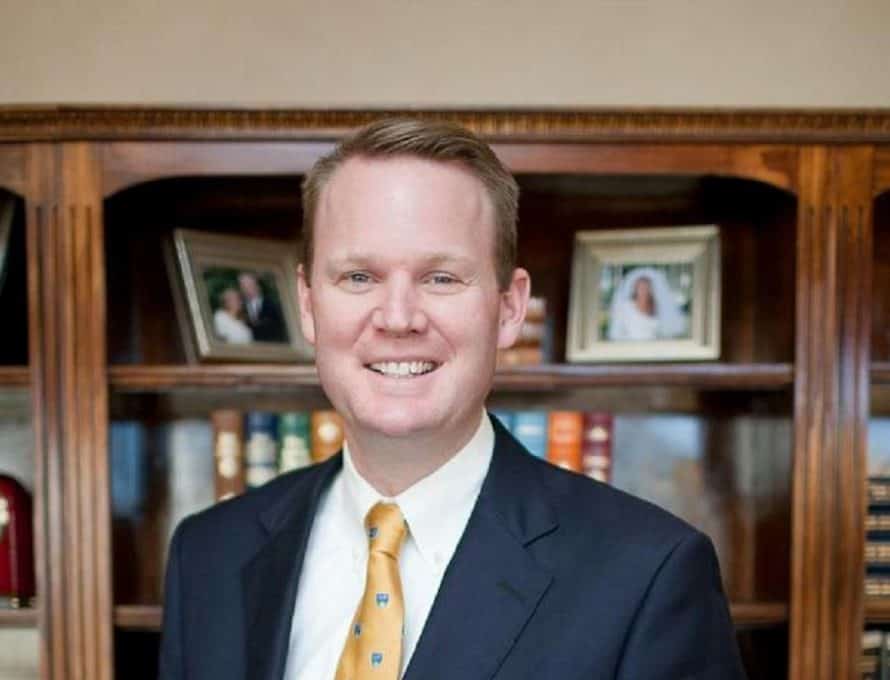KANSAS CITY, Mo. (BP) — Inaugurating the new academic year on Aug. 19, Midwestern Baptist Theological Seminary President Jason Allen noted that the formality of the fall convocation stands “as a visible reminder of the consequence and the divine stewardship that is ours.”
Allen said the literal meaning of the term “convocation” is to call together or come together for a special purpose — as such, the intent of the service wa for the seminary community to “dedicate ourselves anew to the church, the Word of God, Baptist distinctives, the Gospel and the Great Commission as a seminary that exists for the church.”
In opening his fifth semester as Midwestern’s president, Allen preached from Ephesians 4:7-16 on the topic: “Called by God: The Urgency, Gravity, and Necessity of Faithful Gospel Ministry.”
The call to ministry is a “specific, distinct, discriminating call,” Allen said. “As teachers and students, we have sensed and do sense that call. Churches have affirmed that call and the seminary community seeks to foster, nurture and serve as a context in which that call can flourish.”
Allen said the chapel audience to investigate the ultimate questions of a calling to ministry: “Why has God called you to ministry?” “How has God called you to ministry?” and “Unto what ends has God called you to ministry?”
From Ephesians 4, Allen said there should be a profound sense of urgency associated with a ministry calling because of the backdrop of Christ’s victory over sin, death and the grave and what that means for the church. It is because of this accomplishment that only Christ has the power to call and empower a minister for work in the ministry.
“He [Jesus] has declared His majesty, authority and victory, and now He is saying to the church, ‘Based upon My authority and My victory over death — My triumph over the full forces of evil — I give My church these servants and offices,'” Allen said, adding this fact should put everyone’s call to ministry on solid footing.
Allen cautioned that there is a propensity to lose sight of this urgency in everyday life and ministry, but he encouraged the students not to do so, saying, “Do not think too localized or temporal about your call to ministry. If you have been called, you are part of a called force. You are an heir and steward of the legacies of Edwards, Whitefield, Spurgeon and all of the greats we know. Think of your ministry not in a prideful way, but in God’s eyes no less consequential or intentionally than these great giants we celebrate.”
Allen also noted the gravity of one’s call to ministry, pointing out that Christ’s secret strategy “for equipping of the saints, for the work of service to the building up of the body of Christ” is those called to ministry.
In referencing several factors about his personal call to the ministry, Allen said one factor was, and still is, that he was “afraid not to be in ministry because I understand biblically that my call is not my call. It is God’s. I believe with all my heart this was God’s plan for my life. Who am I to discard His plan for my life…? I am afraid not to submit to that call, and I pray that you feel something of that same trepidation, given how we see the gravity of the call to ministry pictured here.”
Allen next emphasized the necessity of a person’s call. He said that, in the humblest sense, the bottom line is that the church needs the offices of pastor, evangelist and teacher. “A church without these offices would be like a ship without a rudder,” he said. “The church will be perilously unguarded. It needs these offices for strength, stability, direction and buoyancy.”
Allen further noted that the necessary role pastors, evangelists and teachers play within the church is about Gospel unity, developing spiritual maturity and having a ministry marked by Christian charity and love.
Allen concluded his message reminding the audience, “We do not credential you for the ministry; God does. We do not call you into ministry; God does. Make it your ambition to live your ministry and pursue your studies constantly.”
Also during the convocation, John Mark Yeats, Midwestern’s undergraduate dean, signed the seminary’s Articles of Faith. And Allen formally introduced five new faculty members: Jason Duesing as academic provost; Christian George, assistant professor of historical theology and curator of the C.H. Spurgeon Library; Matthew Swain, assistant professor of church music and worship; Sung Jin Park, dean of Korean studies and assistant professor of biblical studies; and Trey Bechtold, instructor of biblical studies and course developer for the Midwestern Seminary Online Program.
To hear Allen’s message in its entirety, click here.

